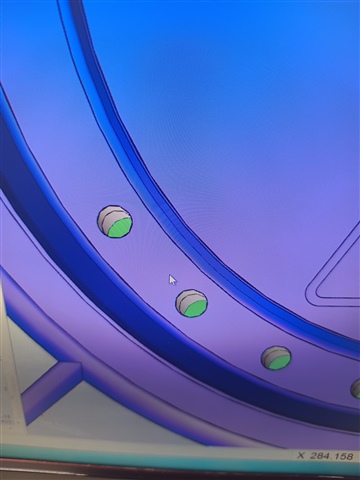
I need to measure this holes. Diameter its 3.100 mm. What is the best method for measurement? Least square or max inspection? Thanks
Your Products have been synced, click here to refresh

I need to measure this holes. Diameter its 3.100 mm. What is the best method for measurement? Least square or max inspection? Thanks
Depends on the application.
What tolerances do you have?
Do you scan?
I can't scan. Tolerance its from 0.00 to 0.005. Holes need to be repaired so i need to measured them the best i can. Tnx for answer
Do u have some an idea?
I would meassure them as cylinders with at least 2 rows and 13 points per row and evaluate min max
Max its 3.134, min its 3.120. and least square its 3.133. so its least sq was best method?
As others have already said, "better" depends on what you are trying to verify. If you just want to know what the average diameter is, based on the points you have taken, then least squares will give you that. However, if you are tying to prove that the part will assemble / function correctly, other methods would be more appropriate. For example, to verify the largest size shaft that would fit through the holes, you would need to sample as much of the cylinder as possible with as high a point density as is practical and then use constrained L2 math - DEFAULT feature math in the ASME Geometric Tolerance or Size command.
The following post explains DEFAULT math in more detail: (+) GD&T "size" always different from dimension "size" - PC-DMIS for CMMs - PC-DMIS - Nexus Community (hexagon.com)
Thanks guys a lot!
| © 2024 Hexagon AB and/or its subsidiaries. | Privacy Policy | Cloud Services Agreement |